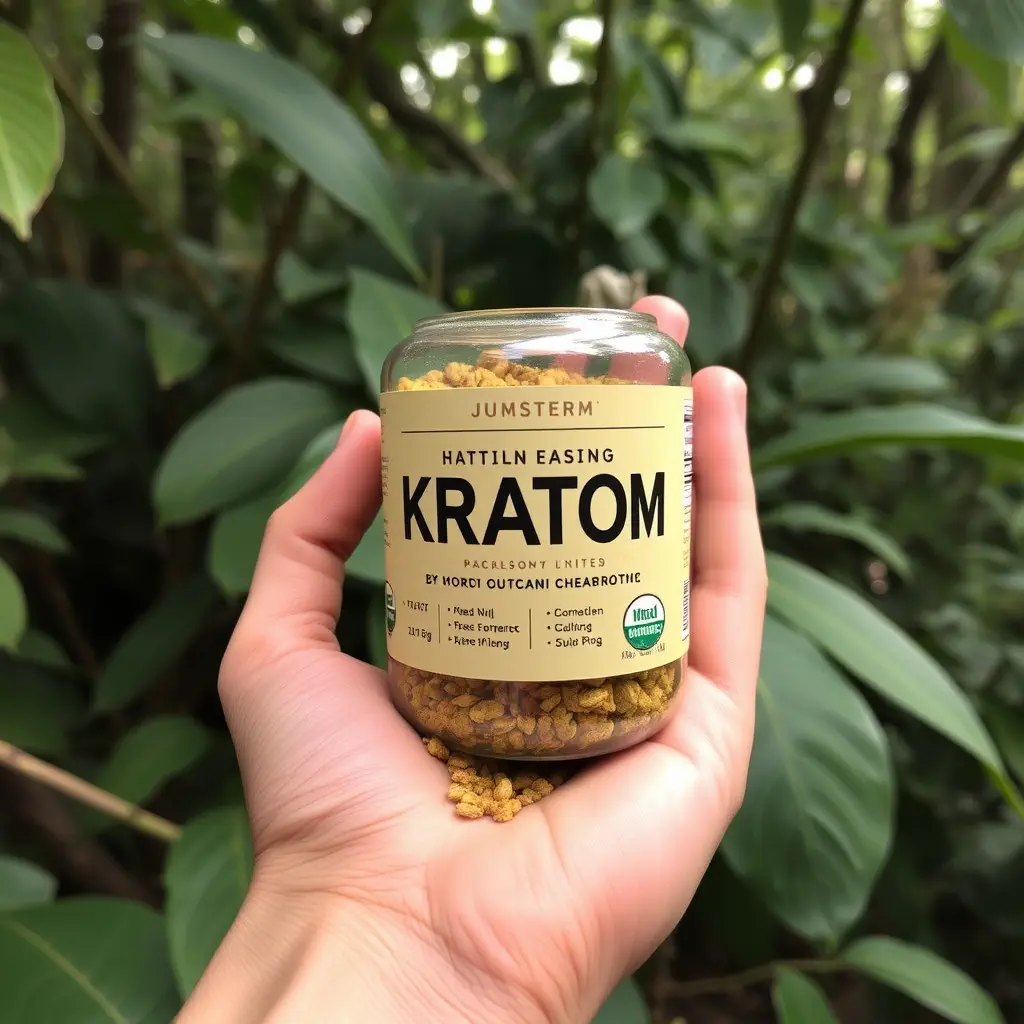Kratom, a plant-based substance from Southeast Asia, is gaining attention as a potential alternative treatment for opioid use disorders within addiction counseling. Its leaves contain alkaloids that can stimulate and act like opioids, offering hope in managing withdrawal symptoms and cravings associated with substance abuse. Mental health professionals are investigating kratom's mood-modulating and pain-relieving properties as part of recovery strategies. However, the safety, efficacy, potential for abuse, and proper regulatory classification of kratom remain subjects of ongoing research. The complex pharmacology of kratom necessitates a cautious and professional approach to its use in treatment plans, with mental health counselors at the forefront of this exploration, providing informed guidance while ensuring client safety and well-being. The future role of kratom in addiction treatment is still under investigation, with the legal status of the substance being a point of contention across different jurisdictions, highlighting the need for continued research and ethical consideration in its application as an alternative treatment modality in mental health counseling.
Mental health counseling encompasses a broad spectrum of interventions aimed at enhancing an individual’s psychological well-being. A pivotal aspect within this field is the exploration of alternative treatments, such as the use of kratom in addiction recovery. This article delves into the multifaceted role of kratom in addiction treatment, examining its mechanisms and potential benefits for substance abuse recovery. It also addresses the complex ethical considerations and regulatory frameworks surrounding kratom’s use in therapy. As we navigate these topics, the focus remains on understanding how kratom may serve as a tool within mental health counseling practices, offering insights into its therapeutic application and challenges.
- Exploring the Role of Kratom in Addiction Treatment within Mental Health Counseling
- Understanding Kratom's Mechanisms and Potential in Substance Abuse Recovery
- Navigating Ethical Considerations and Regulatory Frameworks Surrounding Kratom Use in Therapy
Exploring the Role of Kratom in Addiction Treatment within Mental Health Counseling

Kratom, a plant originating from Southeast Asia, has garnered attention in the realm of addiction treatment within mental health counseling. Its leaves contain compounds that can have stimulant or opioid-like effects, depending on the dosage, which has led to its exploration as an alternative treatment for substance use disorders, particularly for those addicted to opioids. In mental health counseling, kratom may offer a potentially effective tool for managing withdrawal symptoms and cravings. Research is ongoing to further understand its efficacy and safety profiles, as well as its potential for abuse and dependence. Mental health professionals are examining how kratom can be integrated into treatment plans, considering its ability to modulate mood and alleviate pain, which are often co-occurring issues in addiction recovery. The use of kratom in addiction treatment is a subject of debate due to its complex pharmacology and regulatory status; however, when approached with caution and under professional supervision, it holds promise as a complementary approach alongside traditional therapies. Mental health counselors are tasked with navigating the nuances of kratom’s role in recovery, ensuring that clients receive informed guidance and support throughout their journey towards healing. As research continues to evolve, the potential for kratom to aid in addiction treatment within mental health counseling remains an area of significant interest and investigation.
Understanding Kratom's Mechanisms and Potential in Substance Abuse Recovery

Kratom, a plant originating from Southeast Asia, has garnered attention in the realm of addiction treatment due to its potential in mitigating withdrawal symptoms and addressing substance abuse recovery. The mechanisms by which kratom exerts its effects are complex and multifaceted. Mitragynine, one of the primary active alkaloids in kratom, interacts with opioid receptors in the brain, offering pain relief and mood elevation, which can be beneficial for individuals recovering from opioid addiction. Additionally, kratom’s influence on neurotransmitters such as dopamine and serotonin may help regulate mood and reduce cravings for substances. Research into kratom’s efficacy in addiction treatment with kratom is ongoing, with studies exploring its role in opioid use disorder (OUD) recovery. The substance’s ability to alleviate withdrawal symptoms and decrease relapse rates presents a promising alternative or adjunct to traditional treatments. However, it is crucial for individuals considering this approach to consult healthcare professionals due to the potential for dependency and adverse effects. The regulatory status of kratom varies, with some regions considering it a controlled substance, highlighting the need for further research and oversight to fully understand its role in addiction recovery and ensure its safe use as part of a comprehensive treatment plan.
Navigating Ethical Considerations and Regulatory Frameworks Surrounding Kratom Use in Therapy

Navigating ethical considerations in mental health counseling, particularly in relation to addiction treatment with kratom, requires a nuanced understanding of both the therapeutic potential and the regulatory framework surrounding its use. Kratom, a plant-based substance derived from the Mitragyna speciosa tree, has garnered attention for its psychoactive effects, which can range from stimulant to opioid-like properties depending on dosage. As such, counselors must be well-versed in the ethical implications of incorporating kratom into treatment plans. They must adhere to the regulatory guidelines set forth by the Food and Drug Administration (FDA) and other governing bodies, which classify kratom as a Schedule I controlled substance due to its potential for abuse and lack of accepted medical use. Counselors are bound by ethical standards to act in the best interest of their clients, which includes providing informed consent, avoiding harm, and respecting client autonomy. This necessitates a thorough discussion with clients about the risks and benefits associated with kratom use as an adjunct to addiction treatment.
Furthermore, counselors must stay abreast of evolving legal statuses of kratom at both state and federal levels, as these can significantly impact the delivery of effective addiction treatment with kratom. The ethical landscape is further complicated by varying scientific opinions on kratom’s efficacy and safety. Mental health professionals are tasked with navigating this complex terrain, ensuring they provide evidence-based practices while remaining compliant with laws and regulations that govern the use of such substances in treatment settings. This delicate balance requires ongoing education, ethical decision-making, and a commitment to upholding the trust and safety of clients seeking help for substance use disorders.
Mental health counseling encompasses a broad spectrum of therapeutic interventions aimed at enhancing individuals’ psychological well-being. Within this realm, the role of Kratom in addiction treatment has emerged as a subject of significant interest and debate. The article has delved into the intricate mechanisms of Kratom and its potential benefits in substance abuse recovery, offering valuable insights for mental health professionals. It has also navigated the complex ethical considerations and regulatory frameworks surrounding Kratom use in therapy, highlighting the need for careful consideration and responsible application within treatment plans. Ultimately, this discourse underscores the importance of ongoing research and collaboration among healthcare providers to optimize addiction treatment with Kratom while ensuring patient safety and adherence to legal standards.






